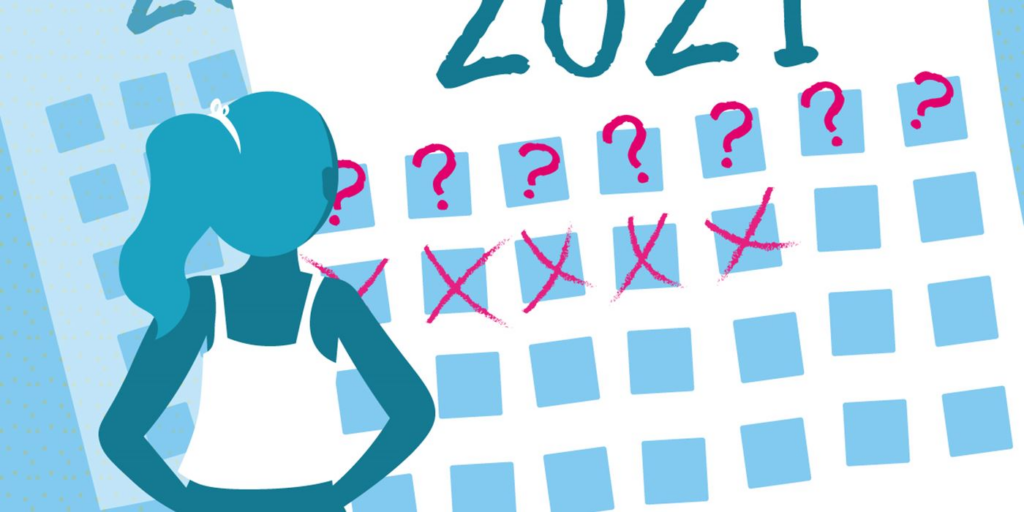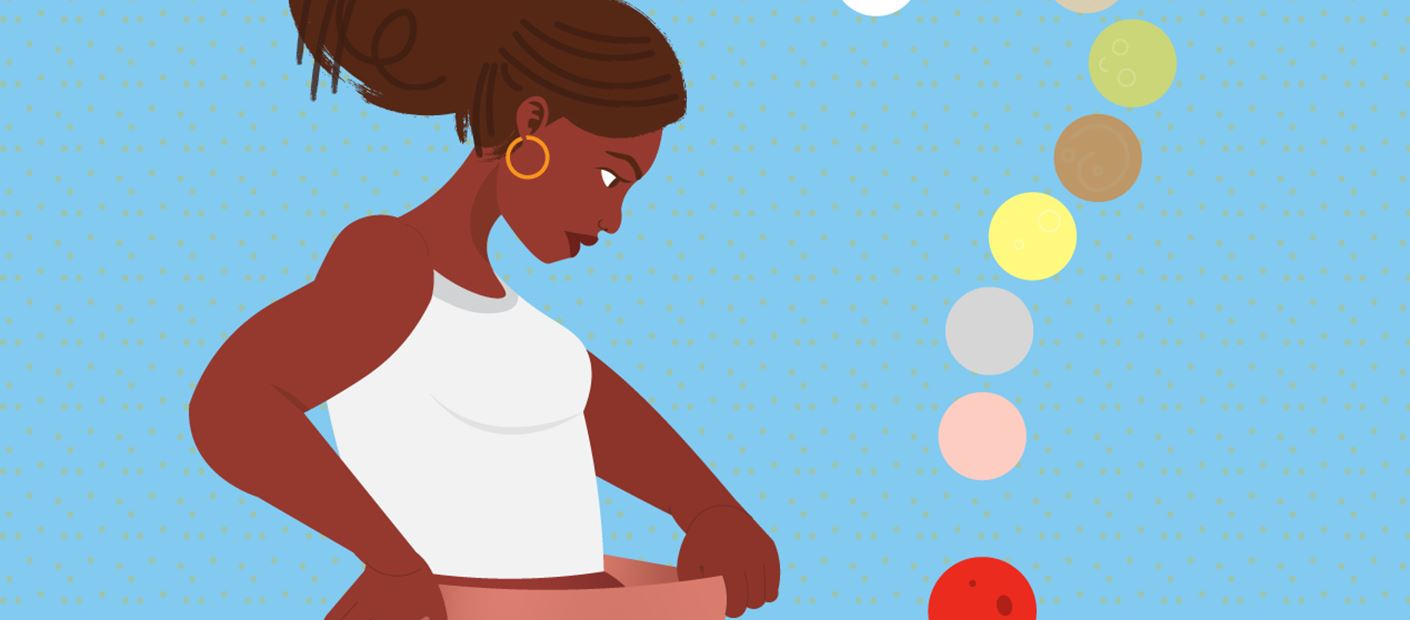
It’s not unusual for your periods to change over time. Bleeding can get heavier or lighter, and cramps can come and go. But sometimes, changes in your menstruation can be the sign of a problem.
Endometriosis, fibroids, pelvic inflammatory disease (PID) and sexually transmitted infections (STIs) can all cause menstrual problems. Find out what’s normal when it comes to periods, and when you should seek help.
Are my periods normal?
Most women have a period every 28 days, although anywhere between 21 and 40 days is normal.
Generally, a period will last about five days. Your bleeding will be heaviest in the first few days. At this stage it’s usual for the blood will be very red. After that it will change to pink and then brown or black as the bleeding gets lighter. Most women lose around 2 or 3 tablespoons of blood during their period.
It’s very common to get cramps that start just before you get your period and last for up to three days. If you’re experiencing period pain, there are some things you can do to help. While exercise may be the last thing on your mind, just going for a walk can relieve your cramps. You can also try over-the-counter painkillers.
If you’re finding it hard to cope with the bleeding or the pain, it could be a sign of a problem.
What counts as a heavy period?
You may already suspect you have heavy periods but it can be hard to be sure.
One way to tell if your periods are heavier than they should be is if you’re getting through a sanitary pad every hour or two or have to get up in the night to change your pad. Another sign is if you have clots of blood that are bigger than a 50 cent coin.
When should I get help for my heavy and painful periods?
If you’re bleeding so much that it’s making your life difficult, it’s time to get it checked out. Even if nothing serious is causing your heavy periods, losing extra blood each month can lead to an illness called anaemia. Anaemia can make you feel unwell and very tired.
Get checked out too if:
- you notice a change to the period pain you’re experiencing
- your period arrives much earlier or later than it normally does
- you’re bleeding in between periods or after sex
What’s causing the changes to my periods?
If you’ve just started taking the pill or another hormonal contraceptive, you’ll probably notice your periods changing. They should settle into a regular pattern again after a few months. Intrauterine devices (IUDs) can cause your periods to get heavier but they shouldn’t be so heavy you can’t cope.
If you don’t think either of these are to blame, you could have one of these conditions. They are all treatable, so talk to Marie Stopes Ghana about getting help.
Fibroids
Fibroids are lumps which grow in or around the womb. They’re not cancerous. As well as painful, heavy periods and bleeding between periods they can cause:
- pain or pressure in your lower tummy or back
- constipation or feeling the need to wee a lot
- pain or discomfort when you’re having sex
They can vary in size from a pea to a melon. The bigger they are, or the more fibroids you have, the more likely it is you’ll get symptoms.
Depending on how badly affected you are, they can also be to blame if you’re finding it hard to get pregnant.
Pelvic inflammatory disorder or disease
Pelvic Inflammatory disease (PID) can be caused by sexually transmitted infections (STIs) like chlamydia and gonorrhoea that aren’t treated properly.
PID can cause pain in your lower tummy and bleeding between periods or when you have sex. Your vaginal discharge may change and you can sometimes have a fever too.
Ovarian cysts
These sacs filled with fluid grow on your ovaries and are very common. They usually go away on their own without you even noticing them. But if they get very big, they can cause heavy periods and pain in your lower tummy.
Endometriosis
Endometriosis can cause very heavy, painful or irregular periods that are very difficult to manage. Endometriosis can also lead to infertility.
Endometriosis pain is usually worse during your period, but it can last throughout the month. It can also be worse when you wee or poo. You might also have pain during or after sex and feel sick, have constipation or diarrhoea.
Ectopic pregnancy
An ectopic pregnancy is when a baby starts to grow outside your womb. You’ll usually miss your period but if it does arrive, it will look watery and dark brown. You may also have pain in your lower tummy down one side.
An ectopic pregnancy can’t be saved. It can become life-threatening if it gets big enough so it needs urgent treatment.
Where can I get help for painful, heavy or irregular periods?
If your periods have changed or you think you may have one of these conditions, get in touch with us or visit a Marie Stopes clinic near you. While you wait for your appointment, start keeping a diary of symptoms. It may help us work out the best treatment for you so that you can soon be on the way to recovery.








